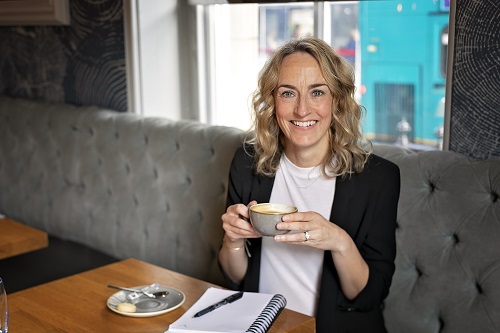
Finding peace and positivity during periods of uncertainty is always hard. And coronavirus has presented us with levels of challenge that for many of us are unprecedented.
It can seem that this microscopic force is attacking every area of our life, from our jobs and travel plans to our food and relationships. At the same time, we may feel bombarded with guidance, and bewildered as to the best course of action.
We will be forever altered by this experience. But it is finite. Like everything else, it will come to an end. And when it does, there is every chance that the alterations we experience will have benefits for us as individuals and communities.
As we adjust to this new normal, we will need to practise self-care and self-compassion.
Lifetime Therapist, Malachy Dunne shares 7 ways to cultivate a peaceful mind during unsettled times. “Allow yourself time to settle into a different rhythm of life defined by different priorities.” Malachy advises, “Be patient with yourself and with others. In time, you will recognise the signs of anxiety and feel more able to acknowledge this emotion and let it go.”
Here are 7 ways to cultivate positivity and peacefulness:
Notice Your Anxiety And When It Is Unhelpful, Let It Go
It is only natural to feel anxious at this time. Any uncertainty breeds anxiety. But the job of anxiety is to expect the worst. Choose reliable sources of information and limit your News consumption to a maximum of two sessions a day. Actively seek out positive news stories to balance your worldview.
Use The Gift Of Time Well
Stay mindful of the fact that this pandemic is finite and will end. Use this limited period of time as an opportunity to do the things you enjoy. Perhaps now is a good time to develop a skill or complete a project. For many, it will offer time to nurture relationships and to take pleasure in simple tasks such as cooking a meal or reorganising a wardrobe.
Spend Time With Nature
For those fortunate to have outside space, now is an opportunity to enjoy the multiple benefits of gardening. Allow yourself to be creative in planning and designing new areas for plants that will attract pollinators, nesting boxes and feeders for birds or vegetable plots to feed yourself.
Even a window box or house plant collection can provide the close contact with nature that is necessary to our well-being. Time outside, whether in your own garden or strolling around your neighbourhood, will also provide essential exercise, fresh air and some well-needed serotonin and vitamin D.
Ask For Help
When we ask others to help us we show our vulnerability, giving them permission to do the same. Asking for help also gives others an opportunity to be kind, strengthening our sense of connectedness and giving us a healthy boost of endorphins.
Do Five Generous Things Each Day
We know that eating five portions of fruit and vegetables is good for our physical health. Well, five acts of generosity can have a similar effect on your mental health. Scientists have shown that when we do something to enhance the well-being of another person, we also experience reduced anxiety. In effect, generosity quietens our amygdala, turning down our fear and stress responses.
Realise You’re Not Alone
Many people are going through the same thing with the same difficult feelings. Reach out to others whenever possible. A phone call or text can reassure. It is possible that many of the feelings we are experiencing at this time are the consequence of traumas or anxieties we ordinarily suppress.
It can be hard to acknowledge and talk about these feelings but doing this offers the potential for growth and enhanced future well-being.
Practice Gratitude
This may seem an odd suggestion at this time, but the science behind gratitude is compelling. Notice small things that bring you pleasure and share them with others. Give your appreciation for them aloud or write them down as part of a daily journal. There may be more things to be grateful for than you thought.









Indeed great suggestions! In these times when most of us have locked themselves up and hardly venturing out, with uncertainly looming large, anxiety is an obvious byproduct. The biggest anxiety is regarding our jobs and this suggestion to upgrade ourselves and learn new skills make complete sense.
John Gatesby recently posted…Autoimmune and Postural Orthostatic Tachycardia Syndrome (POTS)